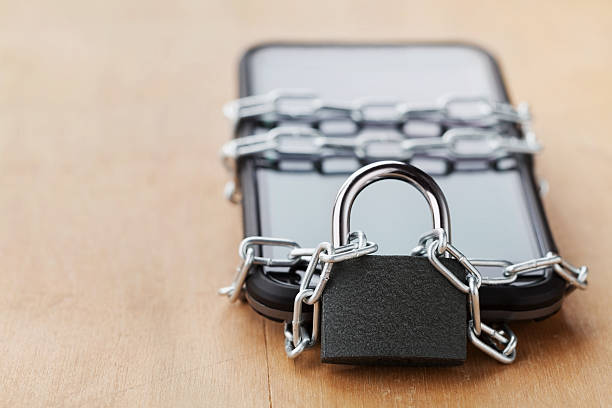The Healing Power of Massage:

A Pathway to Relaxation and Stress Relief:
In our fast-paced, modern world, stress has become an almost ubiquitous part of daily life. From demanding jobs and bustling schedules to the pressures of maintaining a work-life balance, the sources of stress are countless. One of the most effective and ancient remedies for combating stress and promoting relaxation is massage therapy. This practice, rooted in various cultures for thousands of years, offers a myriad of benefits that extend beyond mere relaxation. Let’s explore how massage can help alleviate stress, its various forms, and additional practices that can enhance its effects.
The Science Behind Massage Therapy:
Massage therapy involves manipulating the muscles and soft tissues of the body to improve health and well-being. The practice can reduce stress and induce relaxation through several physiological and psychological mechanisms:
- Reduction of Cortisol Levels: Stress triggers the release of cortisol, a hormone that can have adverse effects on the body when present in high levels for extended periods. Massage therapy has been shown to significantly lower cortisol levels, thereby reducing stress.
- Increase in Serotonin and Dopamine: These neurotransmitters play a crucial role in mood regulation. Massage therapy can increase the levels of serotonin and dopamine, promoting feelings of happiness and well-being.
- Activation of the Parasympathetic Nervous System: This part of the nervous system is responsible for ‘rest and digest’ activities. Massage helps activate the parasympathetic nervous system, which counters the ‘fight or flight’ response induced by stress.
- Improvement of Blood Circulation: Enhanced blood flow delivers more oxygen and nutrients to the muscles and tissues, aiding in recovery and reducing fatigue.
- Muscle Relaxation: By reducing tension in the muscles, massage alleviates physical discomfort and helps the body enter a state of relaxation.
Types of Massages and Their Benefits:
There are various types of massage therapies, each with its unique techniques and benefits:
- Swedish Massage: This is the most common type of massage, known for its gentle, flowing strokes. It’s ideal for overall relaxation and stress relief.
- Deep Tissue Massage: This type targets deeper layers of muscle and connective tissue. It’s beneficial for chronic pain and tension.
- Aromatherapy Massage: Combining massage with essential oils, aromatherapy massages enhance relaxation and mood improvement.
- Hot Stone Massage: The use of heated stones helps relax tight muscles, ease tension, and improve blood flow.
- Shiatsu Massage: A Japanese technique that uses finger pressure on specific points of the body to relieve tension and improve energy flow.
- Thai Massage: This involves stretching and deep massage techniques to enhance flexibility, relieve muscle and joint tension, and balance the body’s energy systems.
The Psychological Benefits of Massage:
Beyond the physical advantages, massage therapy also offers significant psychological benefits:
- Reduction in Anxiety and Depression: Regular massage sessions can help alleviate symptoms of anxiety and depression. The release of endorphins and the reduction in cortisol levels contribute to an improved mood.
- Improved Sleep Quality: Stress often leads to sleep disturbances. Massage promotes relaxation and can lead to better sleep patterns, helping individuals feel more rested and rejuvenated.
- Enhanced Mental Clarity: By reducing stress and promoting relaxation, massage can improve focus and mental clarity, allowing individuals to handle daily tasks more effectively.
- Increased Sense of Well-being: The nurturing touch of a massage therapist can create a sense of comfort and care, enhancing overall emotional well-being.
Complementary Wellness Practices:
To maximize the benefits of massage therapy, consider incorporating these complementary wellness practices into your routine:
- Mindfulness and Meditation: Practicing mindfulness and meditation can enhance the relaxation achieved through massage. These practices help calm the mind, reduce stress, and improve emotional resilience.
- Yoga and Stretching: Engaging in regular yoga or stretching exercises can maintain the flexibility and relaxation of muscles between massage sessions. Yoga also incorporates breathing techniques that promote relaxation.
- Hydrotherapy: Using water for therapeutic purposes, such as hot baths or hydro massage, can complement the effects of traditional massage by further relaxing the muscles and reducing stress.
- Proper Nutrition: A balanced diet rich in nutrients supports overall health and well-being, making the body more resilient to stress. Hydration is also crucial, as it helps flush out toxins released during massage.
- Regular Physical Activity: Exercise is a natural stress reliever. Regular physical activity boosts endorphin levels, improves mood, and enhances overall physical health, making massage therapy even more effective.
Creating a Relaxation Routine:
Integrating massage therapy into a broader relaxation routine can amplify its benefits. Here are some tips for creating an effective relaxation routine:
- Schedule Regular Massages: Consistency is key. Regular massage sessions can help maintain a steady state of relaxation and stress relief.
- Set a Relaxation Space at Home: Create a tranquil environment at home where you can unwind. This space could include comfortable seating, calming colors, and elements like candles or soft music.
- Incorporate Relaxation Techniques: Techniques such as deep breathing exercises, progressive muscle relaxation, or guided imagery can enhance the calming effects of massage.
- Prioritize Self-care: Make self-care a priority. Whether it’s taking a long bath, reading a book, or spending time in nature, find activities that help you relax and incorporate them into your routine.
Massage therapy is a powerful tool for combating stress and promoting relaxation. Its benefits extend beyond the physical realm, significantly impacting mental and emotional well-being. By understanding the science behind massage, exploring different types of massage therapies, and incorporating complementary wellness practices, we can create a holistic approach to relaxation and stress relief.
In our quest for independence and productivity, it is crucial to recognize the importance of self-care and the profound impact it has on our overall health. Embracing massage therapy as part of a broader wellness routine allows us to recharge, rejuvenate, and face life’s challenges with a clearer mind and a more relaxed body. In the end, finding balance between our responsibilities and our need for relaxation is key to leading a fulfilling and healthy life.
